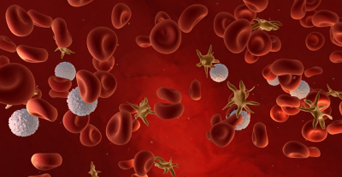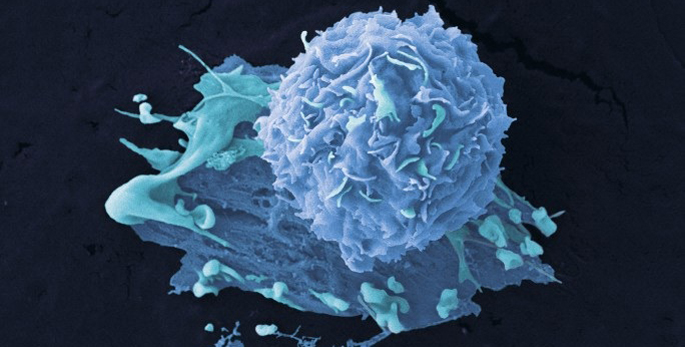NIH
-

NIH awards $11.6 million grant to Vanderbilt, Miami and Meharry for new center to study precision medicine and health disparities
Researchers at Vanderbilt University Medical Center (VUMC), the University of Miami and Meharry Medical College were recently awarded a five-year, $11.6 million grant to launch a new center that will enable research using precision medicine to eradicate health disparities, specifically those among African-Americans and Latinos. Read MoreMay 25, 2016
-

New center to study genomic privacy concerns
Researchers at Vanderbilt University School of Medicine have received a four-year, $4 million grant from the National Institutes of Health (NIH) to establish a new center for the study of privacy concerns associated with the use of genomic information, the NIH announced this week. Read MoreMay 19, 2016
-

New pain medicine from a fungus?
Collybolide – a natural product isolated from a mushroom – is a promising candidate for the development of non-addictive pain medicines. Read MoreMay 13, 2016
-

COX-2 blocker could help PTSD
COX-2 inhibitors – used clinically to reduce inflammation and pain – may find new applications for treating PTSD and other stress-related psychiatric disorders like major depression. Read MoreMay 12, 2016
-

Improving natural killer cancer therapy
A newly discovered mechanism that helps cancer cells avoid destruction by immune system cells may improve immunotherapies. Read MoreApr 29, 2016
-

An Argonaute’s voyage to cancer
A genetic mutation that promotes cancer development blocks the normal sorting of a protein called “Argonaute 2.” Read MoreApr 28, 2016
-

Investigators explore African ancestry, Alzheimer’s risk
Higher genomic levels of African ancestry are associated with an increased risk for Alzheimer’s disease, a consortium of investigators reported recently in Alzheimer’s & Dementia. Read MoreApr 28, 2016
-

Scientists establish first map of the sea lion brain
A team of neuroscientists at Vanderbilt University has taken an important step toward uncovering the mystery behind the California sea lion's prodigious intelligence by conducting the first comprehensive study of their central nervous systems. Read MoreApr 27, 2016
-

How strep grabs on to platelets
New structural details of the binding of the bacterium Streptococcus sanguinis to platelets may offer new therapeutics for life-threatening cardiovascular infections. Read MoreApr 20, 2016
-

Mechanism of a DNA repair protein
Vanderbilt investigators have discovered details about the mechanism of an important DNA repair protein that maintains genome stability. Read MoreApr 15, 2016
-

Study spots possible new approach to prevent obesity
An international research team that included scientists from Vanderbilt University Medical Center has found a novel way to counteract obesity in mice — by stimulating the growth of blood vessels in fat tissue. Read MoreApr 14, 2016
-

First subject enrolled in international HIV prevention study
This month an international HIV prevention trial was launched that is testing the infection-preventing prowess of a monoclonal antibody called VRCO1. Read MoreApr 14, 2016
-

Switching breast cancer off
Signaling by a receptor that is overexpressed in aggressive forms of breast cancer has been linked to glutamine metabolism, suggesting new anti-cancer therapeutic targets. Read MoreApr 14, 2016
-

Immune defenses in asthma
Vanderbilt researchers show that a certain factor negatively impacts the first-line responder cells in the lungs, providing one explanation for why patients with asthma are at greater risk for invasive bacterial disease. Read MoreApr 5, 2016
-

New role identified for p73 gene
The p73 gene is required for the generation of cilia – hair-like projections on cells – findings that could have implications for the study of lung diseases and sterility. Read MoreApr 1, 2016
-

Cancer prevention and poverty
A new epidemiological study supports smoking cessation and avoidance of sedentary lifestyle as cancer prevention measures. Read MoreMar 31, 2016
-

Readmission prediction face-off
Using patients’ health records to assess preparedness for hospital discharge is more effective at predicting readmission or death than commonly used questionnaires. Read MoreMar 23, 2016
-

Putting schizophrenia to bed
A new compound developed at Vanderbilt treats multiple symptoms of schizophrenia in an animal model, without causing sedation. Read MoreMar 21, 2016
-

ROCKs and cancer invasion
The rigidity of the microenvironment around cancer cells drives invasive behavior through distinct ROCK signaling pathways, which could guide the development of specific anti-invasive therapies. Read MoreMar 17, 2016
-

Study suggests cancer’s ‘clock’ can be rewound
Researchers at Vanderbilt University Medical Center have “turned back the clock” in a mouse model of metaplasia — precancerous stomach lesions — raising hopes that gastric cancer, a worldwide scourge that’s rising in the United States, can be prevented. Read MoreMar 17, 2016